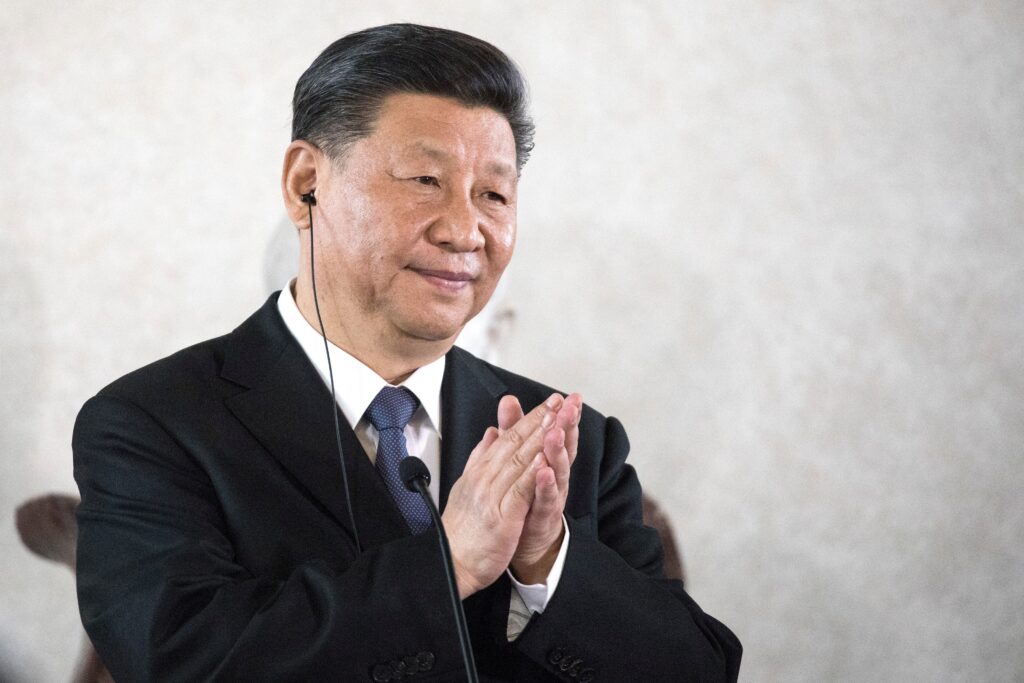Beijing responded forcefully on Saturday, raising tariffs on all U.S. imports to 125%, intensifying the ongoing trade conflict between the two largest economies in the world. The move came just days after Washington implemented its own 125% tariff on Chinese goods. While China confirmed it does not plan to raise duties further for now, officials made clear that any future escalation from the U.S. would be met with swift retaliation.
The decision marks a sharp increase from the previous 84% rate and affects a wide range of American products entering China. Beijing’s Ministry of Finance stated that the current tariff level renders U.S. goods largely uncompetitive in Chinese markets, signaling a major shift in trade dynamics.
Strong Warnings from Beijing
Chinese officials emphasized that the aim is not to provoke but to protect national interests. In a statement, the Ministry of Finance noted, “If the U.S. escalates, China will strike back without hesitation.”
The ministry also criticized the U.S. tariff policy, claiming it damages trust in international economic relations. Officials argue that the American approach lacks long-term strategy and will isolate Washington from global trade allies.
Meanwhile, Chinese diplomats have started reaching out to other nations in search of support, while warning the U.S. that continued pressure tactics will have consequences not only for bilateral ties but also for global markets.
Markets React Sharply to Rising Tensions
Financial markets were quick to respond. Before U.S. markets even opened, both the S&P 500 and Dow Jones Industrial Average recorded steep declines in premarket trading. The U.S. dollar dropped nearly 2% against the euro, while bond yields spiked as investors scrambled for perceived safe assets.
Economists say the rapid shift to U.S. bonds suggests growing concern over global stability. However, some analysts warn that this confidence could weaken if tariffs persist. One Wall Street strategist noted, “Investors are increasingly wary that political decisions are driving economic instability.”
In response, former President Donald Trump brushed off market concerns. “They got a little yippy, a little scared,” he said during a press appearance, implying that the investor response was overblown.
Trump’s Tariff Pause Excludes China
Earlier this week, Trump announced a 90-day suspension on most tariffs introduced under his “Liberation Day” economic package. This pause was intended to give room for negotiation with several trade partners. However, China was notably excluded from this relief.
Instead, the White House immediately hiked Chinese tariffs to 125%, citing Beijing’s “disrespect for global trade norms.” Trump posted on social media: “The U.S. will now charge China a 125% tariff — effective immediately.”
The decision followed a turbulent week in financial markets. Sources inside the administration suggested that rising bond yields and investor anxiety influenced Trump’s choice to delay some tariff increases.
China Builds Global Support Against U.S. Tariffs
China currently holds around $759 billion in U.S. government bonds, making it the second-largest foreign holder after Japan. In light of the trade dispute, Beijing has started discussions with potential allies.
Premier Li Qiang reportedly spoke with EU Commission President Ursula von der Leyen in an effort to gain backing from Europe. Foreign Ministry spokesman Lin Jian also addressed reporters, saying, “A just cause gains allies,” suggesting that the global community may side with China if the conflict worsens.
Despite diplomatic outreach, experts warn that many countries may hesitate to side fully with China due to previous trade and human rights disputes. Nevertheless, with bilateral trade between China and the U.S. reaching nearly $700 billion in 2024, both sides have much at stake.
What’s Next in the U.S.–China Trade War?
For now, both nations appear entrenched in their positions. While China claims it won’t raise tariffs further, it has made clear that it will defend its economic interests at all costs. Washington, meanwhile, is doubling down on what it sees as a necessary stand against unfair trade practices.
This latest round of tariffs marks a critical juncture in a trade war that shows no signs of cooling. Businesses on both sides of the Pacific are bracing for more uncertainty, while global markets remain highly sensitive to each announcement from Beijing or Washington.
